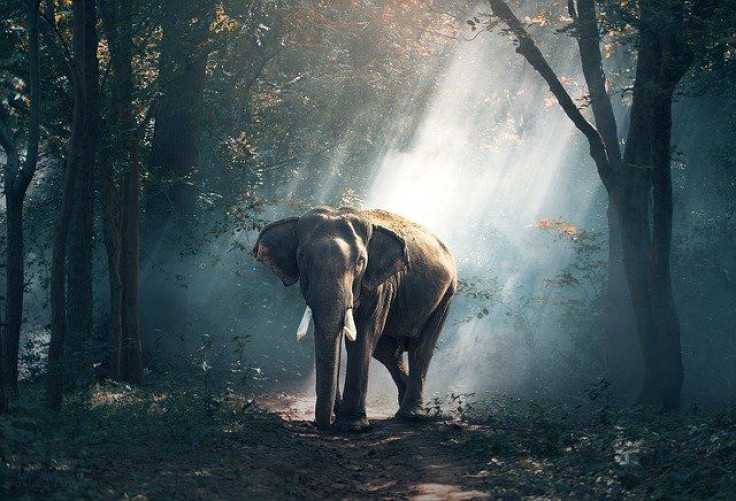Over 300 Elephants Die Under Mysterious Circumstances In Botswana
KEY POINTS
- 350 elephants have died under mysterious circumstances in the famed Okavango Delta
- Botswana government said lab results was delayed due coronavirus pandemic
- Poaching was ruled out as a possible reason due to elephant tusks still being in place
A total of 350 elephants have died under mysterious circumstances in the famed Okavango Delta in Southern African country of Botswana over the last two months, which according to the scientists is a “conservation disaster.”
Botswana tourism ministry confirmed the first dozen deaths in early May, and upwards of 200 elephants perished by mid-June, with 70% of carcasses clustered around waterholes, The Guardian cited local sources as saying.
Poaching as a possible reason was ruled out due to the tusks of the deceased elephants being in place. Even though African poachers tend to use cyanide as a means of killing the animals, experts downplayed the possibility, in this case, noting that scavenging animals didn’t seem to be dying around the carcasses.
Experts are weighing on the possibility of a pathogen causing the mass elephant die-off in the delta, with Botswana government yet to determine whether the alleged disease could pose a risk to human health. COVID-19 has been earlier speculated as a possible cause but is considered unlikely.
“If you look at the carcasses, some of them have fallen straight on their face, indicating they died very quickly. Others are obviously dying more slowly, like the ones that are wandering around. So it’s very difficult to say what this toxin is,” the publication reported Dr. Niall McCann, the director of conservation at National Park Rescue, a UK-based organization, as saying.
McCann also dismissed the possibility of an Anthrax outbreak, which claimed at least 100 elephant lives in Botswana last year. There is, however, an indication of neurological impairment as local witnesses said some elephants were seen walking around in circles.
Local reports state that many live elephants showed signs of weakness and appeared emaciated, which implies more deaths are likely to occur in the coming weeks.
“There is real concern regarding the delay in getting the samples to an accredited laboratory for testing in order to identify the problem – and then take measures to mitigate it,” Mary Rice, executive director at the London-based Environmental Investigation Agency told The Guardian.
“We are aware of the elephants that are dying. Out of the 350 animals we have confirmed 280 of those animals. We are still in the process of confirming the rest,” Dr Cyril Taolo, acting director for Botswana’s department of wildlife and national parks, told the publication, adding that the coronavirus crisis has impeded the transportation of samples to laboratories around the world for testing.
Okavango Delta is home to about 15,000 elephants, making up for 10% of the country’s total elephant population. “You see elephants as assets of the country. They are the diamonds wandering around the Okavango delta,” The Guardian quoted McCann as saying. “It’s a conservation disaster – it speaks of a country that is failing to protect its most valuable resource,” he added.
There have been no reports of elephant deaths in the neighboring countries.

© Copyright IBTimes 2024. All rights reserved.












